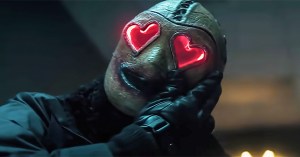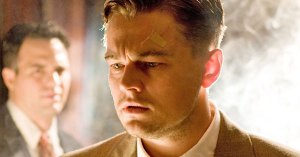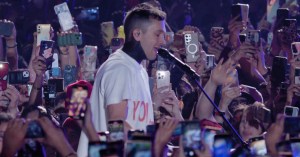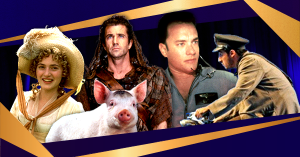Sydney Film Festival: More From the Official Competition
Russian Space Drama, French Absurdists and Britain's Charles Bronson

Paper Soldiers
Aleksei German Jnr’s Paper Soldier is probably the most dense and oblique film yet to screen in competition at the Sydney Film Festival. For those unprepared for the languorous pace of Russian arthouse cinema, this film may well be too slow and obscure — which could explain some of the walk-outs at the film’s Australian premiere last night.
However Paper Soldier is worth the effort. As a Hollywood blockbuster the story would follow group of Russian doctors, soldiers and neophyte cosmonauts, all commissioned for the dangerous and daring task of launching the first man in space. Cue: John Williams soundtrack. Cue: Extended training montage. And yet Paper Soldier is much less about the action as it is about the psychological and emotional landscape of post-Stalinist Russia, where space becomes a symbol of human nature’s capacity to change and heal.
Alisher Khamidkhodjaev and Maksim Drozdov’s award-winning cinematography carves out this contemplative state, where the reality of the space flight takes a back seat to sprawling discussions about family and loss, Stalin and Chekov. In fact the rambling nature of the dialogue is reflected in the camera that drifts around like a separate character, capturing the world in beautiful depth.
The characters and performances augment these stunning tableaux. No doubt those with more understanding of Russian history and literature will get more out of a screenplay peppered with quotes and allusions conveyed in snatches of dialogue. However, the burning of the Gulag is a standout scene that should speak to everyone. Again, shot in almost one, long and roving take, the destruction of this painful past seems not so clear-cut after all.
One assumes the film derives from the poem The Paper Soldier by renowned Russian poet Bulat Shalvovich Okudzhava, from which a section is quoted in the film:
But he, cursing his destiny,
didn’t crave a peaceful life,
and always begged for gunfire and flames,
forgetting he was a paper soldier.
It encapsulates Aleksei German Jnr’s beautiful and challenging film, where the race to space is only the departure point for a long, involved and often funny discussion about Russia’s history and her destiny.

Louise-Michel
Anyone bitter about the Global Financial Crisis will take delicious, vicarious pleasure in the revenge comedy that is Louise-Michel. From the very first scene — of a botched cremation ceremony — French filmmaking duo Benoît Delépine and Gustave de Kervern set about entertaining their audience with a world where, clearly, nothing is sacred.
Returning to the idea of a retribution road movie from their raucous directorial debut Aaltra, here Delépine and de Kervern sketch out the tale of some slighted factory workers pooling their severance pay to hire a hitman. Illiterate and prickly ex-crim Louise (Yolande Moreau) stumbles upon the eager and oafish Michel (Bouli Lanners) as the man for the job. Politically incorrect hilarity ensues when it turns out Michel has scruples — of sorts — and instead decides to hire his dying cousin to do the hit. But when they get the wrong man, Louise and Michel pursue their quest from Picardie to Brussels and up the corporate ladder to the illustrious tax haven of Jersey.
The wonderfully framed deep-focus cinematography, deadpan dialogue and ludicrously funny site-gags all contribute to the offbeat charm of Louise-Michel. From target practice gone wrong, to people smuggling, to a dwarf sentry dressed as a garden gnome, Delépine and de Kervern display an incredible comedic talent. Their humour is akin to the Coen Brothers, complete with sudden outbursts of violence that got at least one scream from the festival audience. However their 9/11 spoof — while funny — was perhaps a bit of a stretch. In fact the quirky neighbour character came across as a mere vehicle for this quite self-conscious scene.
The ‘romantic’ subplot may also miss the mark for you, though Moreau and Lanners’ pitch-perfect performances carry it off. Also well cast are Louise’s partners in crime, played by real life redundant factory workers (hint: be sure to stay for the credits). And Mathieu Kassovitz must get a mention for his hilarious cameo as a committed eco-farmer.
Inspired by the 19th Century revolutionary Louise Michel, Delépine and de Kervern revealed in their recorded introduction that they considered their film, “a revolutionary anthem.” But they also admitted to not trusting Air France enough to fly to Australia, so we’re very fortunate that their comedy made the journey — in more ways than one.

Bronson
Charles Bronson is Britain’s most violent prisoner. An infamous title to be sure, and one now well and truly in the international spotlight thanks to Nicholas Windig Refn’s stylish film Bronson.
Brock Norman Brock’s screenplay sees this bio-pic play out like a trip to vaudeville. Tom Hardy, in his absolutely stand out performance, plays comedian, singer, artist and strong man in Charles Bronson’s (a.k.a Michael Peterson) one man variety version of This is Your Life. He’s brash and utterly unrepentant as he hams it up for his audience, and the camera, recalling, “I wasn’t bad. I wasn’t bad-bad. I still had my principles.”
The camera, however, tells another tale, and with a distinctly Kubrickian eye, it reveals an incredibly violent man, one desperate for attention. Unfortunately, this is where the characterisation halts. Bronson, while visually striking and with a powerful, dominating soundtrack, lacks the character and story development of its Australian counterpart Chopper. Rather than asking ‘why?’ and probing or problematising Bronson’s pursuit of infamy, or even the nature of celebrity, the film seems content to look good and say, well, not so much.
Perhaps that’s the point. Perhaps the why’s and wherefores are for another film and this one is caricature, which is actually a valid comment on the nature of Bronson. But there was definitely room for more. He’s a caricature. Got it. Now what?
In his Q&A sessions Brock hinted that his screenplay indeed had more. He spoke about creating an unreliable narrator, challenging Bronson on his constructed reality and even bringing his son on stage at the end to drive the point home. This certainly would have brought depth and breadth to a film with the tagline: “The Man. The Myth. The Celebrity.”
That, however, is the nature of show business. And while Bronson could have more ambitious with the story, this film is absolutely worth seeing for Tom Hardy’s incredible performance as well as Refn and cinematographer Larry Smith’s sophisticated and cinematic imagery.
Britain’s Got Talent never looked so good.
For full program details, head over to the Sydney Film Festival’s website






